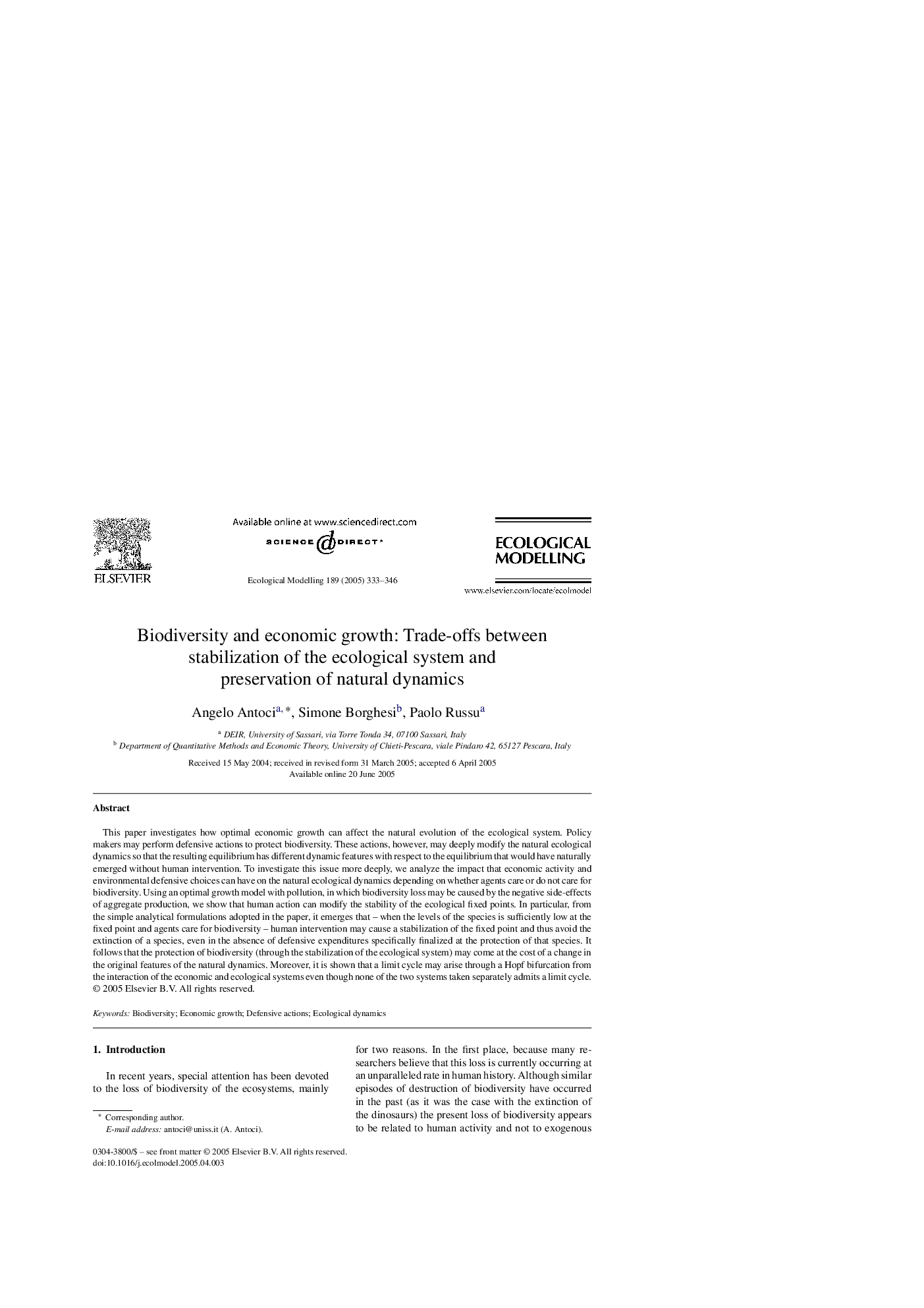| Article ID | Journal | Published Year | Pages | File Type |
|---|---|---|---|---|
| 9443415 | Ecological Modelling | 2005 | 14 Pages |
Abstract
This paper investigates how optimal economic growth can affect the natural evolution of the ecological system. Policy makers may perform defensive actions to protect biodiversity. These actions, however, may deeply modify the natural ecological dynamics so that the resulting equilibrium has different dynamic features with respect to the equilibrium that would have naturally emerged without human intervention. To investigate this issue more deeply, we analyze the impact that economic activity and environmental defensive choices can have on the natural ecological dynamics depending on whether agents care or do not care for biodiversity. Using an optimal growth model with pollution, in which biodiversity loss may be caused by the negative side-effects of aggregate production, we show that human action can modify the stability of the ecological fixed points. In particular, from the simple analytical formulations adopted in the paper, it emerges that - when the levels of the species is sufficiently low at the fixed point and agents care for biodiversity - human intervention may cause a stabilization of the fixed point and thus avoid the extinction of a species, even in the absence of defensive expenditures specifically finalized at the protection of that species. It follows that the protection of biodiversity (through the stabilization of the ecological system) may come at the cost of a change in the original features of the natural dynamics. Moreover, it is shown that a limit cycle may arise through a Hopf bifurcation from the interaction of the economic and ecological systems even though none of the two systems taken separately admits a limit cycle.
Related Topics
Life Sciences
Agricultural and Biological Sciences
Ecology, Evolution, Behavior and Systematics
Authors
Angelo Antoci, Simone Borghesi, Paolo Russu,
